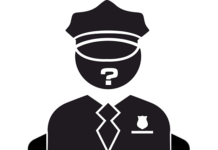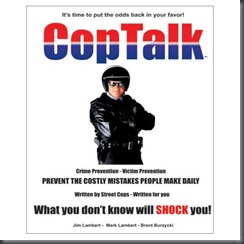Neighborhood Watch Groups
Why does it work?
To understand the value of neighborhood watch in a community, you must first understand that your local law enforcement agency is limited in their available manpower. A neighborhood watch program in your community will greatly help your local police overcome their manpower shortage. This is done by the use of alert citizens within the community who are constantly observing their neighborhoods for suspicious activities.
On a national average, there is approximately ONE police officer for every 2,000 citizens.
Here’s an example; a police department in a city of 65,000 citizens might have a force of 85 sworn police officers. That may sound like a lot but remember that includes ALL personal including the Chief, captains, lieutenants, sergeants, administrators, evidence personnel, traffic officers, narcotic officers, detectives, etc. Those officers are not on the streets patrolling. A force of 85 sworn police officers may have a patrol force of only 35 officers that regularly patrol the streets. Of those 35 officers, they are divided into different shifts and work days. Depending on how many officers are assigned to a shift, there may be 6-8 police officers on duty during the busiest time of the day or evening. Take away officers for vacations, sickness, injury, court appearances, training etc and there might only be 4-5 officers on the street. As you can see, that’s not a lot for a city of 65,000.
Police officers in high crime areas or busy cities usually have to be reactive, responding to calls and incidents AFTER they occur. There is not much time to be proactive to try and PREVENT crime from occurring. I used to work a very busy graveyard shift running from call to call to call. High priority calls such as fights, robberies, injury accidents etc and most in-progress calls always take priority over a “cold†call where the suspect is unknown or already gone. I’d show up at “cold†theft or burglary call 2 hours after it was called in and the homeowner would be furious at our response time. I’d ask how many officers they thought we had on the street and people would usually say 20 or 25. They would be shocked when I told them that we only had 4 or 5 officers on the street and that there were over 15 calls still waiting to be dispatched.
That’s why neighborhood watch is so important. An alert citizen’s call can be the difference between police responding to an in-progress call such as a burglary and apprehending a suspect versus police showing up hours later to write a “cold†report with unknown suspects. Obviously there are many more citizens than there are police officers. Citizens become an extension of the police department’s eyes and ears.
Here’s an example;
A burglar pulls onto a residential street and cruises slowly through the street. A few open garages with tools and bicycles in view but no one around. He parks near a house and watches for a few minutes. After seeing no one around, he pulls up to an open garage, quickly grabs the toolbox and bicycles and drives off undetected. Or he might have even knocked on a door to see if someone was home, went into the backyard and broke in through a window. After taking jewelry, cash and a gun, he walks back out to his car and drives off unnoticed. The homeowner later arrives home from work to find their house ransacked. The police are called and check the neighborhood for witnesses and a few people say they saw some unfamiliar cars come and go during the day but they didn’t pay attention and couldn’t provide any information. The crime will be unsolved with the suspects unknown.
With a neighborhood watch group in place;
The same burglar pulls onto the same street and slowly cruises through. He sees some people looking out their windows watching him. He parks for a few minutes and he sees another person standing in their driveway writing down his license plate number. There’s no way he’s going to stick around and try to commit a crime with people watching him or with his license plate written down by a neighbor. He knows someone is probably calling the police to report a suspicious car in the area. He starts his car and drives off to find a victim on another street where he goes unnoticed.
Here’s something else: The license plate jotted down by a neighbor can help solve a crime committed elsewhere. Police may be investigating a burglary on one street and check a nearby street for witnesses or leads. A neighbor who reported a suspicious vehicle in the area earlier and provides a license plate number might be the one lead police need to solve the crime. Remember, a thief might cruise through your neighborhood and leave if he is noticed, but he will be going to another neighborhood, probably nearby. That one call of a suspicious vehicle or person in an area can make the difference between burglars being arrested or getting away and committing more burglaries.
How to form or join a neighborhood watch group:
Most police departments have someone assigned to set up neighborhood watch groups. If you are new to a neighborhood there may be one in place already. If there is no neighborhood watch group in place, the police department can help you set up a meeting in your neighborhood and have neighborhood watch signs installed on your street. A police officer assigned to that area or “beat†usually attends the meetings to update citizens of the crimes occurring in their neighborhood and to address the concerns of the residents.
Neighborhood meetings allow residents to get to know each other, know who drives which cars, know who should be home or not. This allows people to call in suspicious activity. For example, if a neighbor knows that you work during the day and that no one is usually home, they would be more likely to call the police if they see a strange vehicle in your driveway or people hanging around your home while you are gone. The police would rather respond to find out it was unfounded rather than get a call from the homeowner hours later reporting that their home was burglarized.
Neighborhood watch groups are not formed for people to take the law into their own hands; they are formed for the residents to be alert and to report any suspicious people or activity in their neighborhoods. Residents should refrain from interrupting suspicious activity and should call the police immediately as a witness. Have a notepad handy by the telephone or window. You might remember a license plate number for a minute or two but it could get mixed up trying to remember it later. Write down a description of suspicious vehicles or people in your neighborhood and save it for a few days. It may be nothing but then again, you may read about a nearby burglary in the paper a few days later and the license plate number you copied down just might be the burglar’s car. Calling the police department and providing the license number of a suspicious vehicle just might help solve a burglary that has occurred. Or an officer on patrol might spot the car “casing†a neighborhood and know from your call that the same car was called in as suspicious hours earlier in another neighborhood.
The bottom line is that neighborhood watch groups work as long as they stay active. Groups usually meet once a month at different residents homes to discuss the things occurring in their area. Some groups even have their meetings on the street during a neighborhood BBQ. Getting to know each other and knowing what belongs in the neighborhood and what doesn’t is the key to a successful neighborhood watch group.
If you don’t have a group formed yet, contact your local police department for information on how to form one. Most departments have booklets with all the information you need to get started!
© Coptalk





